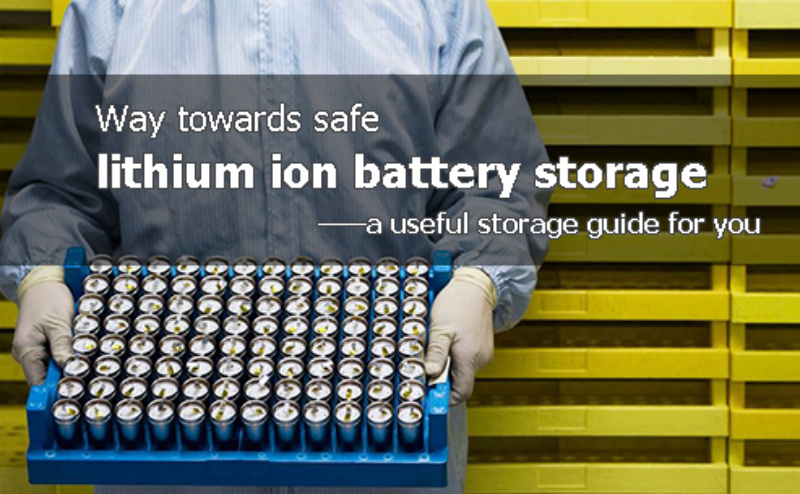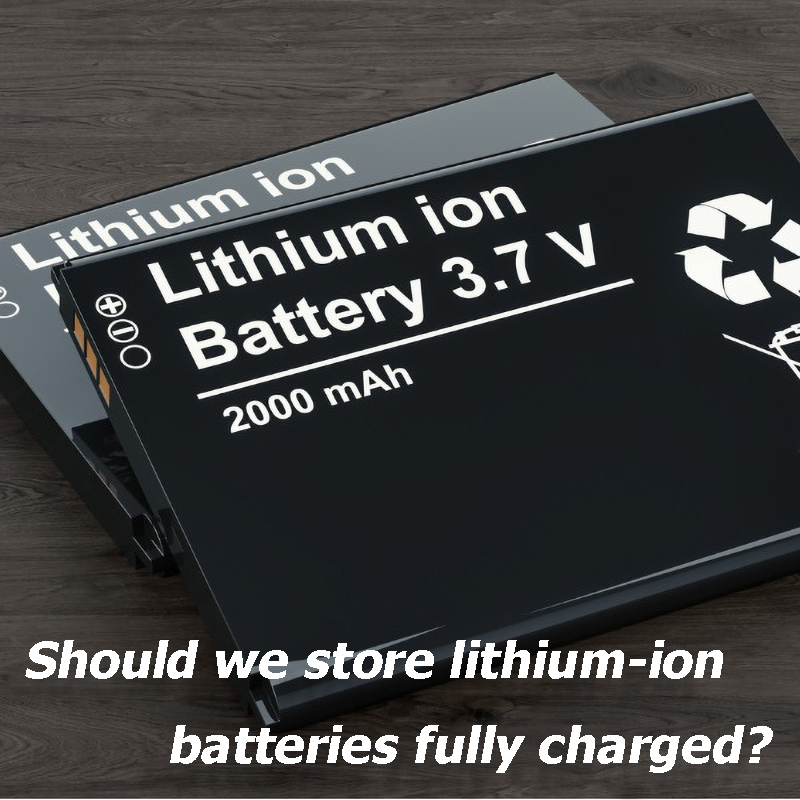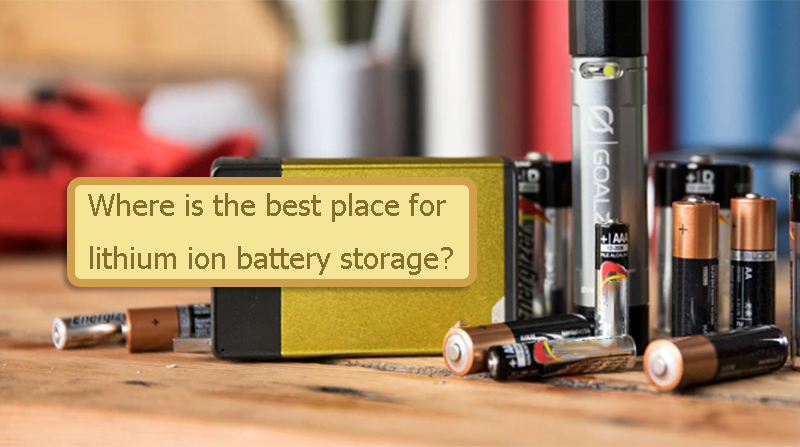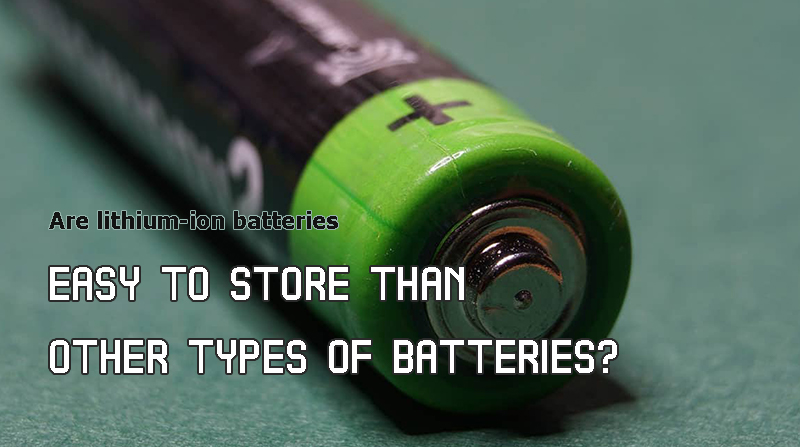
Main content:
- Proper ways for lithium ion battery storage/ method of storing lithium-ion batteries for a longer period
- Do lithium-ion batteries lose charge when stored for a long period?
- Should lithium-ion batteries be stored fully charged?
- At what voltage we should store lithium-ion batteries?
- Where is the best place for lithium ion battery storage?
- Can lithium batteries be stored in garage?
- What is the best temperature to store lithium-ion batteries?
- How do you store lithium batteries for the winter?
- Are lithium-ion batteries easy to store than other types of batteries?
A lithium-ion battery is a special type of advanced battery in which lithium ions play a vital role. Small Lithium-ion batteries are usually used in smart electronic devices, whereas large Lithium-ion batteries are generally used as solar batteries or power batteries, etc. In the Lithium-ion batteries, two electrodes are used, cathode and anode, and lithium ions move between cathode and anode. The battery is discharged when lithium ions move from anode to cathode and charges when lithium ions move from cathode to anode.
Moreover, comparing lithium-ion batteries with other types, Li-ion batteries have many advantages. Lithium-ion batteries are used for different purposes but make sure you buy the correct one for your needs. In this article, the storage of lithium-ion batteries is discussed. These information will help you gain a deeper understanding of lithium ion battery storage so that you can properly store Li-ion batteries for optimum performance. There are certain advantages of lithium-ion batteries over other types, which make Li-ion batteries easy and reliable to store compared to other conventional types of batteries.
1.Proper ways for lithium ion battery storage/ method of storing lithium-ion batteries for a longer period
There are many ways to proper storing of lithium-ion batteries. Ensure the batteries are stored in a place with proper ventilation. One must care that batteries are not stored in a place of direct sunlight. Heat and humidity also affect the performance of batteries. Moreover, lithium-ion batteries have good storage life if you keep them in cool, temperature-controlled places away from heat and sunlight.

To minimize the charging loss of batteries, you should keep in clean and away from other metals. It should be placed in the storage area where the damage is avoided, and proper lithium ion battery storage is critical. It should be removed from the electronic device before storing it.
2.Do lithium-ion batteries lose charge when stored for a long period?
The answer to this question is yes, all batteries will self-discharge lithium-ion batteries also lose charge when stored. A lithium-ion battery with a certain amount of charge will lose a part of its capacity after being stored at a certain temperature for a period of time. This condition is known as the self-discharging of lithium-ion batteries. The self-discharging of a battery occurs when the temperature is around 20c.
If the temperature is higher, the battery loses its life and discharges at a higher rate. However, the self-discharge rate of lithium-ion batteries is lower than that of other types of batteries, as low as only 3.5% monthly. The self-discharging is not a permanent loss of lithium ion battery storage, it can be recovered by charging it again. Therefore, the battery life is extended if one can care properly while storing.
3.Should lithium-ion batteries be stored fully charged?
Lithium-ion batteries should not be stored when they are fully charged. Storing those at full charge, there will be not good for extending battery cycle life. Lithium-ion batteries should be stored at 50%~80% charge. It is inevitable that chemical reactions that take place inside the battery will cause irreversible capacity loss in the battery over time, and the reaction will be faster when the battery voltage is relatively high.

When buying a new mobile phone and opening it, we all must have experienced that the batteries are around 50% to 60% charged. So therefore, it is suggested by the experts that lithium-ion batteries are not stored when charged fully, and it is best to charge the batteries every 3 months to avoid excessive storage time leading to low battery power and loss of battery life.
4.At what voltage we should store lithium-ion batteries?
A lot of research is going on conserving the health of lithium-ion batteries. It is suggested by the experts to store lithium-ion batteries with a voltage of around 3.8V. If the lithium-ion batteries are fully charged, the voltage is around 4.2V. While a battery of around 2.5V is fully discharged.
5.Where is the best place for lithium ion battery storage?
One of the most frequently asked questions is about the best place for lithium ion battery storage. Lithium-ion batteries should be stored in the battery cabinets, which will save the overall capacity. Store the Li-ion batteries in the mild and dry climate room where an auto-temperature controlled system is available.

6.Can lithium batteries be stored in garage?
This is also one of the most asked questions, but the answer is different for different places. For example, the garage is located in a country where the outside temperature is around 50c, so the answer is no. It cannot be stored in a garage where the outside temperature is high.
The batteries can be stored in the garage for moderate climate regions. The outside temperature of moderate regions is around 25c to 30c. So, therefore one can store lithium-ion batteries in a garage. But the thing which is highly recommended is batteries are stored in a temperature-controlled area.
7.What is the best temperature to store lithium-ion batteries?
The ideal temperature for lithium ion battery storage is around 20-25℃, but one can keep them safe at room temperature. Too high or too low temperatures will degrade the performance of lithium-ion batteries, especially in high-temperature environments, which may cause the battery to overheat, fail to function, or even shorten its lifespan.
Due to their high energy density, they show good storing performance in many areas. For the proper storage management and to avoid thermal runaway, lithium plating and degradation of the battery, the temperature should not exceed more than 45c and should not be less than 0℃.
8.How do you store lithium batteries for the winter?
According to a new research, lithium ion battery storage below freezing point causes a crack in the parts of the battery. These cracked parts are separated from other parts of the battery. At very low temperatures, the overall electrical storage capacity is affected by this problem, the battery may not be able to transfer any charge, and the problem cannot be overcome by charging it. To avoid the above problem, lithium-ion batteries should not be appeared outdoors as much as possible in an extremely cold climate, and the temperature outside of them also needs to be inspected to avoid freezing.
9.Are lithium-ion batteries easy to store than other types of batteries?
The higher the energy density of a battery, the more capacity can be stored per unit weight or volume. Due to the high energy density, lithium-ion batteries are undoubtedly a class of energy storage devices with excellent performance. So it makes it safe while storing compared to other types of batteries. Lithium-ion batteries have much lower self-discharge rate than other types of batteries, and due to it, batteries can be stored over a long period of time.

It's worth mentioning that compared to many other batteries, lithium-ion batteries are maintenance-free, which means you don't need to put much effort into maintaining the batteries. To conclude, best lithium batteries are easier and safer to store than other conventional batteries. While storing Li-ions shows excellent performance and low losses than other batteries, lithium ion battery storage is clearly easier.
















